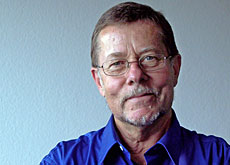Money and Elections

In the United States, owing to a biennial cycle for Congress and the ever-longer drawn out runs for president, it's almost always election season.
This fall Swiss voters are getting ready for their four-year round of choices for members of parliament.
The two systems are also quite different in other respects: proportional versus majority voting, which makes for more parties and more candidates in Switzerland, thus deemphasizing personal charisma in the appeal to voters. Also, war and health insurance reform are at the forefront of political debate in the US, whereas in Switzerland they are not.
But let me focus on a common problem that touches on fundamental issues in the election process in both places: campaign financing. From time to time that question has arisen in both countries, especially as the ability to attract voters has become much more dependent on expensive advertising. In the US, in particular, even a congressional campaign at the state level inevitably requires hefty expenditure on television commercials (political adverts are not allowed on Swiss television).
As the money needed in elections mushroomed, efforts to control spending increased as well. In the US, the first broad efforts to disclose financial contributions to candidates brought about the Federal Election Campaign Act in 1971. In 1974, in the post-Watergate atmosphere, Congress passed amendments to the Act setting up further rules and enforcement tools, including public financing and a Federal Election Commission.
The 2002 Campaign Reform Act and various court decisions since then have refined the controls. The contribution limit has been raised, “soft money” spending by the political parties outlawed, and the canvassing by non-party, friendly organizations curtailed. Critics have argued that campaign-financing restrictions hurt “free speech” guarantees of the Constitution and that new practices to get around the rules – such as the “bundling” of small individual donations by big influence peddlers – pop up anyway.
Lack of transparency
In Switzerland, with election campaigns being so much shorter, TV spending no issue and personalities rather less important than party programs and a whole list of candidates, we would expect little commotion on the campaign-financing front.
However, measures to dissolve “the close connection between certain parties and big corporations”, as one parliamentary motion put it, have been discussed from time to time. A parliamentary initiative in 2006 demanded at least financial transparency, i.e. the public disclosure of money sources. All such efforts have failed at the federal level. (Only the canton of Geneva has introduced public financing of elections at the state level.) The answers given by the pertinent committee majorities or the executive against reform have almost always come down to the suspicion that new rules could be easily circumvented, which strikes one as a thin excuse.
If the technological and financial resources tapped seem to move always a step ahead of the control of legislation, what hope is there that excesses do not overcome otherwise sound election procedures? It may sound simple, but I submit that eventually the only antidotes are the press and voter education.
The internet has, on its own terms, “democratized” research on candidates and even fundraising. Newspapers with enough know-how and will for investigative journalism have regularly combed the available data resources on campaign contributions in America to reveal unusual patterns that let us suspect that someone is trying “to get the best candidate money can buy”.
Voters are thus getting smarter, one hopes. Donor data collected by the US Federal Election Commission are accessible to anyone with a computer: one can look up who gives how much to which politician on one’s street or one’s city, revealing who is and who is not a real grass-roots candidate.
Building block
In Switzerland, we can safely assume that the center-right parties receive funds from big business and the center-left Social Democrats money from the labor unions. What’s more, in the many votes between elections, for initiatives and referendums, it is usually quite clear where the money for the campaigns comes from.
It is thus expected that the voters are smart enough to discern the moneyed interests behind parties and their candidates and that they will decide what’s best for the common good, not special interests. But is that hope enough?
I would strongly argue that, yes, campaign finance controls are messy and the outcomes often uncertain, but that they are nevertheless a good thing. It’s worthwhile to be able to look up donors, and even better that the press is able to report on abuses. It is serious enough that lobbies penetrate every corner of the legislative process once parliament is elected.
Let’s at least keep the sun shining into what they are doing in the electoral contests. Campaign finance control may not be the Jewel in the Crown of democracy, but it is one of the building blocks.
by Jurg Siegenthaler
The views expressed in this column are not necessarily those of swissinfo.
Every month retired professor, Jurg Siegenthaler, compares and contrasts aspects of life in Switzerland with that of his adopted homeland, the United States.
He emigrated to the United States from Switzerland in 1967, and is now a retired university professor living close to Washington, DC. He is a graduate of Bern University (Dr.rer.pol., 1966).
His fields of teaching and research encompassed economic history, social theory and social policy analysis. Throughout his career, he has maintained close comparative research interests in the US and Switzerland.
He is associated with the Institute for Socio-Financial Studies, a research non-profit that has done a lot of work improving financial literacy at the community level.
Since his retirement, Jurg Siegenthaler has broadened his involvement in community organizations and in the arts. He is married and lives with his wife Linda in Silver Spring, Maryland.

In compliance with the JTI standards
More: SWI swissinfo.ch certified by the Journalism Trust Initiative








You can find an overview of ongoing debates with our journalists here . Please join us!
If you want to start a conversation about a topic raised in this article or want to report factual errors, email us at english@swissinfo.ch.